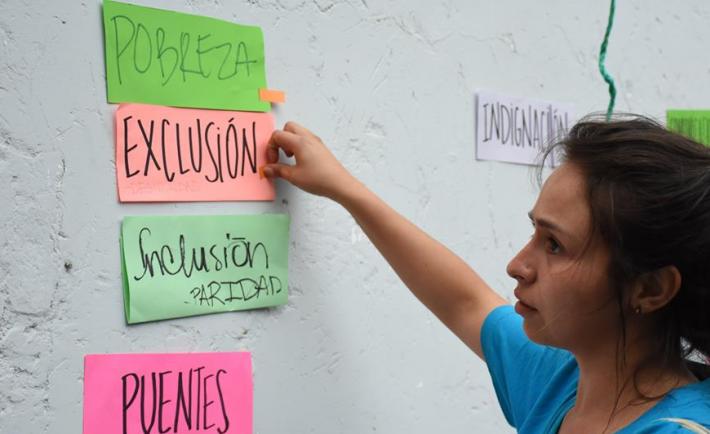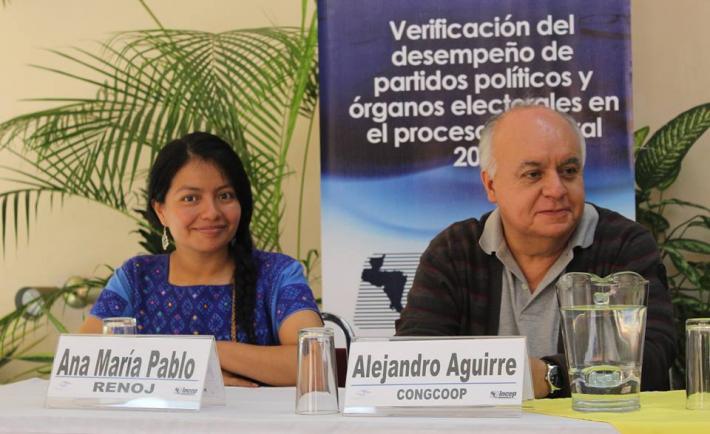
A young Guatemalan woman participates in an activity organized by civil society to reflect on the political crisis and future priorities. Credit: Pamela Saravia
As this blog series has highlighted, the 2015 Guatemalan elections were unique in many regards. Citizen protests resulted in the resignation and arrest of the president and vice president on corruption charges. Voter turnout was the highest since the return to democracy in Guatemala. The presumptive winner, the runner-up in elections four years earlier who was leading in the polls, failed to make it to the second round. And electoral violence was lower than expected and lower than during recent electoral processes. The question then becomes, what’s next for Guatemala?

